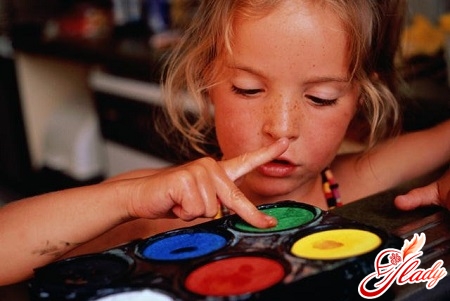 Just recently the baby was laughing sweetly and stretching out his armsyou, so that you hug and kiss him, and today he angrily responds to all your requests and comments? Unfortunately, many families know firsthand what teenage aggression is. And if you do not pay attention to this problem in time and do not rein in the child, in the future the schoolchild may get out of control altogether. And then neither threats, nor punishments, nor encouragement will help.
Just recently the baby was laughing sweetly and stretching out his armsyou, so that you hug and kiss him, and today he angrily responds to all your requests and comments? Unfortunately, many families know firsthand what teenage aggression is. And if you do not pay attention to this problem in time and do not rein in the child, in the future the schoolchild may get out of control altogether. And then neither threats, nor punishments, nor encouragement will help.
The reasons for the appearance of aggression in the child
There are actually many reasons whyaggression appears in adolescence. But first, parents should understand that anger, hatred and similar feelings do not just appear out of nowhere. Therefore, if you are faced with such a state of affairs, you should first find the reason. And only after that can you begin an incredibly difficult fight with the character of the student. And it is not a fact that you will be able to defeat (re-educate) a difficult teenager. Family education or when you missed the moment? Many experts believe that it is mom and dad who are to blame, and not society, the environment, school and similar factors. After all, it is the way parents behave that determines the perception of the world by a person who is not yet physically and morally formed. A teenager, unfortunately, does not always understand that adults can also make mistakes, deceive, lose their temper. They react to everything very sharply. And even the slightest remark can cause hysteria. Therefore, you should reconsider how you behave at home.
- Excessive hyperope
When parents don't let a schoolchild take a single step,do everything for him, the teenager can rebel. He wants to decide for himself what is best, where and with whom to go for a walk, what things he needs. And adults are not an authority for him. Most often, this happens if mom and dad cannot agree among themselves on how to properly raise a child.
- Lack of attention
Aggression is one of the ways for teenagersattracting your attention to his person. If, for example, mom is busy going to beauty salons with her friends, and dad spends all his time at work, the schoolboy feels abandoned. And only after being rude to his father and mother, he begins to understand that he is truly loved.
- Violence in family
Perhaps one of your family membersdisdainful of others, rude, violent, morally or physically humiliating. There are two options why a teenager may become aggressive. The first is that the child is trying to protect himself from a person who is dangerous to him. In the second case, your child copies the behavior of his father, grandfather, uncle, that is, the person who is the aggressor.
- Second child
Often, aggression in a teenager manifests itself inattitude towards his brother, sister. It seems to him that his parents love him less. The situation gets worse if mom and dad often praise the second child and compare them. But even if the teenager is the only child in the family, he may be jealous of Sasha, Masha or Katya, whom you constantly set as an example for him.
- Poverty
Lack of money and unmet needs –This can also be the cause of teenage aggression. In this case, the child will protest against this state of affairs. He wants a new mobile phone, beautiful sneakers and jeans, a powerful computer, but his parents cannot afford such expensive purchases. Some children try to find a job to help mom and dad, while others demand to buy and get angry if they are not given a new toy. And if the parents do allocate money and give the teenager what he wants, the schoolchild begins to show his character even more strongly, testing the strength of others.
- Wealth
Wealthy families often facemanifestation of aggression in teenagers, especially if the child never knows refusal in anything. It is difficult for him to understand why it is impossible to shout at others if he is the boss. By the way, schoolchildren treat badly not only parents, servants, but also less well-off people.
- Traditions
Have you noticed that in strict families, where everyonemembers follow long-established traditions, children in adolescence rebel. They do not like to wear the same clothes as their parents, do the same work, have fun and relax in the same way. They are, in essence, isolated from society. Classmates do not accept such people into their circle, considering them freaks. And being an outcast in society is the hardest thing that a little person unprepared for adult life faces. Biological factors: when hormones are to blame Usually, such changes in behavior occur at the age of 14-16. A serious restructuring begins in the teenager's body, a hormonal boom occurs. And if you do not direct your son or daughter in the right direction, do not occupy them with something serious, the child will begin to show their "I". The first reason why he will decide to do this is an incorrect perception of the world. Adolescence is the time when a schoolchild begins to form his own behavior model. He is no longer the mama's boy he was before. And there are two directions in which relationships with adults can develop. He either begins to respect people who are older and smarter, or shows aggression towards them. By the way, aggression in a teenager can be a normal reaction to exactly the same behavior of other people. Parents rarely notice when the relationship with the child begins to deteriorate. Usually they miss this moment, so busy with more serious problems. And only when an exacerbation occurs, mom and dad begin to make attempts to correct the situation. The search for yourself and your place in life is the most difficult thing in growing up. White and black, good and evil. During this period, teenagers divide the world into two parts. And for them, there is no middle ground. Maximalism is inherent in every person, but in this case it is too clearly expressed. The schoolchild does not want to perceive the world as it is, and tries to change himself, his environment. And if the parents are not ideal, and they have their own vices, the child pushes them away. The second reason why teenagers show aggression is increased sexual desire. It is during this period that girls and boys develop an interest in the opposite sex. It is difficult for them to control and restrain themselves. But it was enough to enroll your son in boxing and your daughter in dancing so that they could release their accumulated energy.
What is teenage aggression?
Often parents cannot distinguish aggression inteenagers and simply a bad mood, laziness, apathy. So, for example, if a schoolchild does not want to talk to his father or mother, this does not mean that he hates them or is trying to ruin their lives. Perhaps he has some problems, and he is simply afraid to talk about them. Panic should be raised if the child:
- attempts to cause moral or physical harm to the victim;
- offends animals, deliberately damages objects and living organisms.
Thus, teenage aggression isdestructive behavior of a child that completely or partially contradicts the rules and norms established in society. At the same time, this person tries to destroy, harm animate and inanimate objects, cause a breakdown or psychological imbalance. A child can express his feelings in different ways. This can be either ordinary depression or an emotional outburst. If a schoolchild is always calm and docile, such behavior should alert mom and dad. This state indicates that the schoolchild is either accumulating aggression, or he is simply unable to defend his point of view. In both cases, this is fraught with consequences.
How aggression manifests in teenage schoolchildren
Teenage aggression manifests itself in different ways.Some people insult their classmates, others need to prove their physical superiority. Some try to offend those who are weaker, others only respond sharply to advice or comments. You should find out how your child behaves not only at home, but also at school, on the street, with friends. Have you paid attention to how he treats other people? So, based on this, several types of aggression are distinguished:
- Physical
Physical aggression among teenagers is perhaps the mostdangerous. The main goal of such a child is to cause pain and harm to another person. The problem is that the schoolchild may not even realize his mistake. He will beat the victim until he loses consciousness, without feeling guilt or regret afterwards. It is not for nothing that it is believed that the worst tyrant is a child.
- Verbal
Do you think that verbal altercations with adults andpeers - is not such a terrible vice? In fact, some malicious statements by children can bring the victim to a nervous breakdown. It is enough for a group of high school girls to tell a classmate that she is ugly, stupid, fat, and so on down the list, and the child may not be able to stand it. Often such "jokes" and bullying lead to suicide. How does verbal aggression usually manifest itself in a teenager? It can be a rebuff, criticism of other people's actions or behavior, foul language, anger, mockery, resentment, hatred. Often a schoolchild shouts curses or threats towards other people.
- Expressive
A man who has been provoked transfers hisattitude towards others using movements, threatening grimaces, facial expressions. For example, a teenager can show an obscene gesture, a fist, make a displeased face. Often this is accompanied by foul language.
- Straight
The child reacts directly to the object,which causes unpleasant feelings in him: anger, resentment, irritation, apathy, hatred. In this case, both physical (beating, self-harm) and moral violence (insults, threats) can be used.
- Indirect
The aggressor does not take it out on the person responsible for his bad behaviormood, but on people or objects that cannot react to it in any way. For example, a schoolboy got a bad grade. When he comes home, he can offend his younger brother, his pet, or break his favorite toy.
Situational and purposeful malice of a teenager
Why does a child show aggression towardsto other people? Is he always to blame for this and should he be punished if he loses his temper? The fact is that sometimes circumstances force him to fight, shout and throw tantrums. Therefore, first you should figure out what caused such a reaction.
- Situational or reactive
Imagine that your child was bullied intransport, school or in a store. How will he react to such behavior? That's right, the teenager will try to give a verbal rebuff to the offender. And only in rare cases will he be able to remain silent, avoiding a conflict. In this situation, we cannot say that the child is aggressive and overly emotional. Yes, he behaved not quite correctly and correctly. But how would you react to a similar situation? Every person, regardless of upbringing and social status, has aggressiveness.
- Purposeful aggression or accumulation of emotions
If a child is constantly rude, fights at school,offends others, does not respect elders, then he is aggressive. Such behavior is not considered normal. In this case, the student needs the help of a specialist. And if aggression in adolescence is directed in the right direction, you will be able to raise a true leader. It will be easier for such a person to adapt to any difficult situation. He will easily subordinate the entire team and become a good boss. If everything is left to chance, in the future the child may engage in crime. He will be interested in humiliating other people.
Who the angry child is
An important role is played by who it is directed ataggression. People often mistakenly believe that schoolchildren can only harm other people. The problem is that teenagers often blame themselves for all troubles and conflicts, being angry at their appearance, character, and behavior. There are two types of aggression:
- Heteroaggression
The schoolboy is aggressive towards those around himpeople, animals and things. He fights, insults, humiliates others and gets special pleasure from it. Often the child uses foul language, not being embarrassed by his brothers, sisters and older people.
- Autoaggression
In this case, the aggression of teenagers is not directedon some stranger, namely on yourself. Often schoolchildren commit suicide or develop serious illnesses caused by psychological disorders.
Who is in the risk category
- Bastard boys
Single mothers have a hard time raising andcontrol sons. Excessive love and care of the female half of the family, lack of male attention and a firm father's hand - all this leads to the fact that the child feels like a king. No one contradicted him before, so why lecture him now? Also at risk are teenagers whose fathers are tyrants and aggressors. At the same time, women in such a family do not have the right to vote, they always and in everything obey others. In such an environment, the son will try to resist his father. And if the older member of the family does not suppress the rebellion and does not break the character, then the child will be an exact copy of the father.
- Girls-rebels
With the fair sex, businessthe situation is completely different. Aggression in teenagers manifests itself in the case when the mother is the authority in the family. The father is too soft. The girl begins to copy the behavior of a rude, assertive, domineering woman. Plus, such daughters grow up to be very bad housewives who do not know how to cook or look after children, and their house is always in a perpetual mess. They are used to the fact that a man does all this. The second category is children left to their own devices. And aggression is an attempt to survive in our, frankly speaking, not very fair and friendly society. Communicating with children in the yard, she learns to fight back. Gradually, this attitude manifests itself in the family.
Male and female aggression: similarities and differences
For some reason it is generally accepted that boysmore aggressive and angry than girls. This erroneous opinion is formed due to the fact that schoolgirls do not show their feelings so clearly and openly. They prefer to spread rumors, sprinkle pepper in underwear, and not hit in front of everyone. Unfortunately, lately the difference has become less and less noticeable. You have probably noticed that guys show their emotions right away. It is difficult for them to control and restrain themselves. Holding a grudge and acting on the sly is not for them. Plus, public opinion plays a big role in this case. So, for example, if your son was offended, the father will tell him to fight back. Daughters will begin to explain that they should stay away from such people. You never know what can happen. Another difference is the way a teenager shows aggression. Representatives of the fair sex prefer to avoid physical violence. As mentioned above, it is easier for them to insult and humiliate. But hitting is the last thing a girl will do. After all, she can get change. Moreover, schoolgirls understand earlier that words hurt more. They learn to find the weakest spot of each individual, and then hit the target. Boys do not have such a talent. They show aggression not in a targeted manner, as girls do, but en masse. Whoever is caught in the crossfire is to blame. Fists are used, and both people and things around them suffer. A guy, for example, can smash a phone against the wall, hit a door with his hand, etc. Now let's look at the behavior of teenagers using an example. So, imagine a situation when a girl likes her deskmate. She can take his pen and make cute faces, blinking her eyes. The schoolboy will try to take this object away, swearing or even using force. Naturally, the boy will be punished, since they will consider that he is the one who initiated this conflict. Thus, girls act as ringleaders, and boys are innocent victims of circumstances. Representatives of the fair sex like to pit people against each other, while remaining on the sidelines. It is much more pleasant to watch than to participate in such actions. Therefore, before punishing your son or daughter for a fight, find out what caused it. Listen to both sides, and only then decide whether to punish the teenager for displays of aggression. If you do exactly this, you will be able to establish contact with the child who has gotten out of control.
What is dangerous is increased aggressiveness or lack of it
As stated above, during this period the teenagerbegins to distance themselves from their parents, tries to do everything on their own. And if, for example, the father forbids the child too much, the son or daughter will do everything out of spite. You should act gently and gradually. You need to understand that this is not a five-year-old who needs constant care and guardianship. The child needs to grow up. Of course, you should not immediately let them go free, indulgences should be made gradually. Do not forget also that the schoolchild needs to communicate with peers. Only with them will he master communication skills, learn to be friends, love, command, resolve problems that arise. Your role is to observe from the side. Believe me, the teenager will turn to you for help when he really needs it. You are his rear and support. If you develop a trusting relationship with the child, even during a period of rebellion, he will turn to you. But in no case put pressure on him, do not force him to talk about what he would prefer to hide. Remember yourself at that age. Did you want your mom and dad to know about your first kiss, intimate relationships, the cigarette you smoked, the bottle of beer you drank? Don't take it out on a schoolchild if he told you about things that make your hair stand on end. If you start criticizing, yelling, punishing, then next time you will not be told anything else. And you will learn about the events in your child's life from neighbors, teachers, acquaintances. An unpleasant prospect, isn't it? Don't try to completely suppress aggression in teenagers! Direct it in the right direction. After all, only thanks to this feeling do people become champions, leaders, winners. A person who never gets angry and does not show any emotions will not be able to show his Self. But be careful that the child does not go down a dangerous path. Often, unrealized strength spills out at the most inopportune moment. That is why there are so many murderers, people with broken destinies, and suicides in our world. Do you think that you have a calm son who wouldn’t hurt a fly? If a teenager is a good boy who helps at home, helps his grandmother through the road, is an excellent student, and is a role model, he may suddenly lose his temper. Such restraint is fraught with nervousness and mental disorders.
How to deal with aggression
First of all, you should understand that nothing can be achieved by force.solve. You will run into a wall that the child will build. And it will be almost impossible to break it down. Find out what causes aggression in teenagers, then try to establish contact with the schoolchild. Try to talk to your son or daughter calmly, without raising your voice. This will set the child in the right mood, he will start listening to you, and will not answer sharply and be rude. If your child is trying to speak out, do not interrupt him. Let him speak. And only after the flow of speech (swearing) stops, you can start the conversation. Remember, he also has the right to show indignation, irritation, anger, mistrust and similar feelings, just like you. As already mentioned above, you should find ways to splash out negative emotions. To prevent your son from coming home wound up and angry, send him to sports training. Boxing, athletics, dancing, swimming, football - all will help get rid of accumulated feelings. If the child is hyperactive, this is the only way for him to get a discharge. What to do if you can't cope with your child, he doesn't want to make contact or you doubt his adequate perception of the world? In this case, you can't do without the help of a specialist. You will have to go to a psychologist with the whole family to figure out what you are doing wrong.
Errors in education or what parents should not do
Unfortunately, we are not taught at school or collegehow to properly create a family, raise children, and establish contacts with people. As a result, we act blindly, making many mistakes that are almost impossible to correct. This also applies to our children. But there are still a number of rules that good and loving parents should know. For example, in order not to provoke aggression in teenagers, you should avoid conflict situations. Believe me, in most cases, if your parents did the same, you would not react better.
- Negative assessment
Telling a child that he is stupid, bad, evil, etc.d, you humiliate him. At the same time, the teenager perceives your words as an incentive to action. And if you constantly criticize him, the student will start doing everything to spite you. Only a few try to improve, to prove that their parents are wrong.
- Mocking shortcomings
By telling your daughter that she is overweight, youyou are giving birth to a bunch of complexes in her. In no case should you openly and in front of everyone talk about your children's shortcomings. You will be pleased if your mother tells your husband in secret that until the age of 16 you suffered from bedwetting or played with dolls.
- Comparison
As it was said earlier, not a single persondoes not like when he is compared with someone smarter, more successful, more beautiful. This causes a certain protest in the teenager's subconscious. Remember once and for all: your child is an individual, there is no one else like him. And, perhaps, in some ways he is worse than others. But he also has some talents. By the way, such behavior of parents can cause aggression in teenagers towards the person who is praised. Therefore, do not be surprised that your son does not like the excellent student and the pride of the whole school. It is better to say every evening that the baby is your joy, you love him as he is, with all his shortcomings and weaknesses.
- Showdown
You can't argue or sort things out with your husbandchild. Otherwise, he will be rude to the weaker one in the family, repeating the habits and manner of communication of the aggressor. If mom and dad always consult each other, make concessions, do not blame others for mistakes and do not shift the care of the home, the child will behave in the same way. Following the above rules, you can avoid the emergence of aggression in teenagers. The last, but most important advice: try to always put yourself in the shoes of a schoolchild. How would you act in the place of your son, if, for example, he is bullied at school. What would you do if your other half was taken away, as happened with your daughter. Only by changing places can you establish contact with children.









